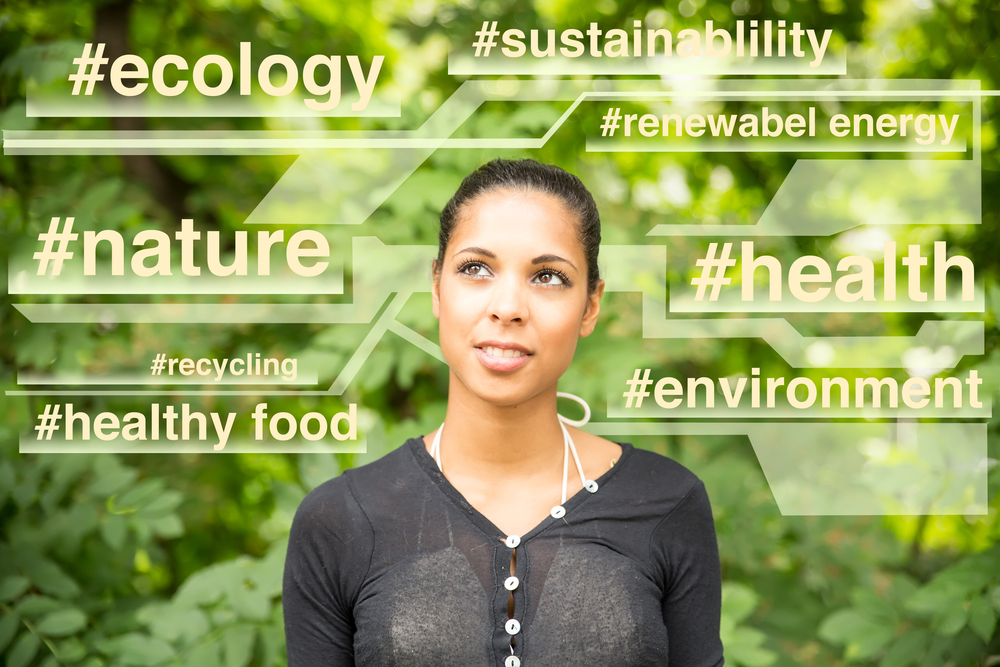Climate change, water pollution, monoculture, loss of wildlife, fall in fish population, junk-food, obesity, animal cruelty… do these words seem too hefty and scary?
Many of us are aware of the environmental challenges, but feel powerless and confused when it comes to taking some action. But wait, there is something called sustainable living. The easiest and commonest definition of living sustainably is “meeting the needs of the present without compromising the ability of future generations to meet their own needs.”
without compromising the ability of future generations to meet their own needs.”
We can live more sustainably by simply making some thoughtful food choices and improving our household environment. Here are a few points to incorporate sustainable food habits in your life:
Include plants in your diet: Organic fruits and vegetables are best, but even if you have the conventional produce, choose those grown with the fewest pesticides. It takes 10 times more fossil fuels to raise animal-source food as it does to grow plant-source food. You don’t need to search hard – usually, the most sustainably-raised food comes from local farmers. If possible, buy vegetables right off the farm, at farmer’s markets or at food co-ops.
Be a vegetarian: In many countries, entire forest ecosystems are being converted to cattle ranches to support the demand for meat. When we eat less meat, we can afford to buy better quality meat. Though you may find it troublesome, try to get organic, pasture-raised, antibiotic-free, humanely and sustainably raised meats. If you are fond of fish, opt for the wild, pole-caught or species with healthy populations.
Cook your own food: Now there is more reason to avoid the junk food. When we buy packaged foods or eat fast foods, we’re supporting industrial agriculture, which is harmful to the environment and ecologically unsustainable. Many fast foods and readymade foods are made from corn or soy, the crops that are grown in vast monoculture strips using chemical fertilizers and pesticides.
However, when we cook, we obviously choose fresh ingredients. This way we can avoid preservatives, artificial colors and flavors, and can control the calories, portions and trans-fats.
Have a garden: What can be more sustainable than fresh, wholesome vegetables and fruits grown in your own house? If not many, there are at least some varieties of fruits and vegetables that can be grown in a small space. What you’ll need is good soil, organic products, organic seeds and then you can enjoy fruits of you labour, literally!
Make your own compost: Remember how our grannies used to tell us to reuse everything we could? Don’t throw away the kitchen wastes into garbage! Compost leaves, grass clippings, fruit peels and vegetable scraps, and use their good nutrients in your garden and lawn. Reuse and recycle as much as you can.
Maintain your soil: Chemicals like fertilizers, pesticides and fungicides destroy the soil and its organisms. Organic management is much better. It may take more start-up time and investment, but will pay off big dividends in the long term.
Do what is close to your heart: Concentrate on the top sustainability issues that really matter to you, be environment, energy, agriculture, technological innovation or public transportation. Try to make changes in your lifestyle that might support and sustain your pet issue.
Make your yard a sanctuary: Soften the impact of wildlife habitat loss by providing food, water, shelter and nesting sites. Plant native species of shrubs, grasses and trees to support birds, butterflies and beneficial pollinators. Pollination, seed dispersal and insect control are just a few of their benefits.
 Support local traders: When we buy from our neighborhood, we improve the money rotation and job opportunities. It is just a way to show our sensitivity to the community development issues. Indirectly, it supports compact town centers that conserve land and petroleum.
Support local traders: When we buy from our neighborhood, we improve the money rotation and job opportunities. It is just a way to show our sensitivity to the community development issues. Indirectly, it supports compact town centers that conserve land and petroleum.
Please don’t be stupid: When it comes to food and eating habits, lot of people lapse into stupid and inane arguments like “animals are meant to be eaten” or “humans need protein from meat”, such sort of inanities have been many times and over to be proven to be false. Thus, don’t lapse into it. If you can’t be sustainable about your food habits, at least don’t be stupid.
Small gestures make a big difference. Go ahead and start from your own house, start by making changes in your lifestyle. Eventually, you will see that neighbours and friends also join you and learn from you. At least your children will learn more about ecosystem and environment from a young age and imbibe the good habits.










Recent Comments